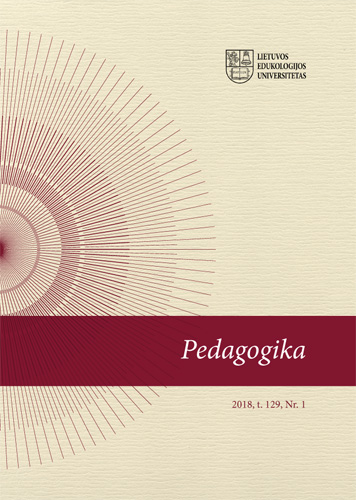Įsivertinimo sampratos raiška I klasės mokinių kalboje
The Expression of Conception of Self-Assessment in the Speech of 1 Grade Students
Author(s): Vaiva Schoroškienė, Audronė KrivickaitėSubject(s): Education, School education, Educational Psychology, Methodology and research technology, Evaluation research
Published by: Vytauto Didžiojo Universitetas
Keywords: self-assessment; conception of self-assessment; primary education; integrated education; interdisciplinary education; self-regulation skills;
Summary/Abstract: As we care to create a successful learning for every student we talk about students’ capacity to evaluate their own studying process. It is thought that when student is able to assess his own learning his academic results tends to be much higher than students who prefer not to assess themselves. Thus, it is recommended to begin self-assessment lessons in a primary school. Nevertheless, the importance of self-assessment is being highly analyzed there are few empirical researches which would show the real situation of how it works with students in the first grade. Also, it is proven that at this age children understands the world as a unified system, thus the subjects at school should be as much related as possible. When talking about self-assessment it is easier to try it in the context which is less difficult to understand. In this research we have integrated two lessons of arts and Lithuanian language. After completing the research we have noticed some significant changes in students’ perception of self-assessment. They mentioned that when they can assess themselves they can notice what was good in their work and where do they have to improve. The majority of students said that self-assessment is necessary for them and after the research they are going to assess themselves more often.
Journal: Pedagogika
- Issue Year: 129/2018
- Issue No: 1
- Page Range: 156-170
- Page Count: 15
- Language: Lithuanian

